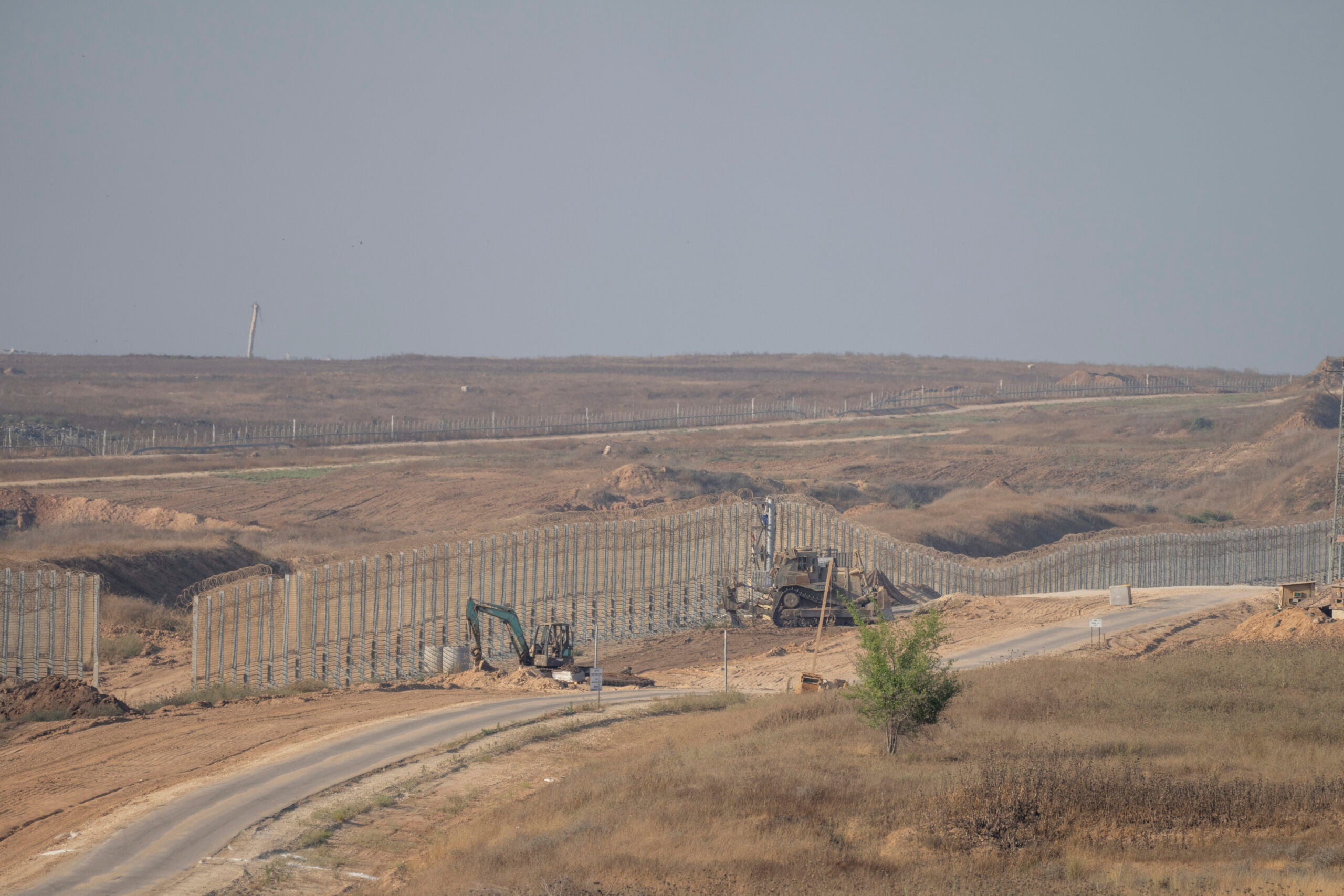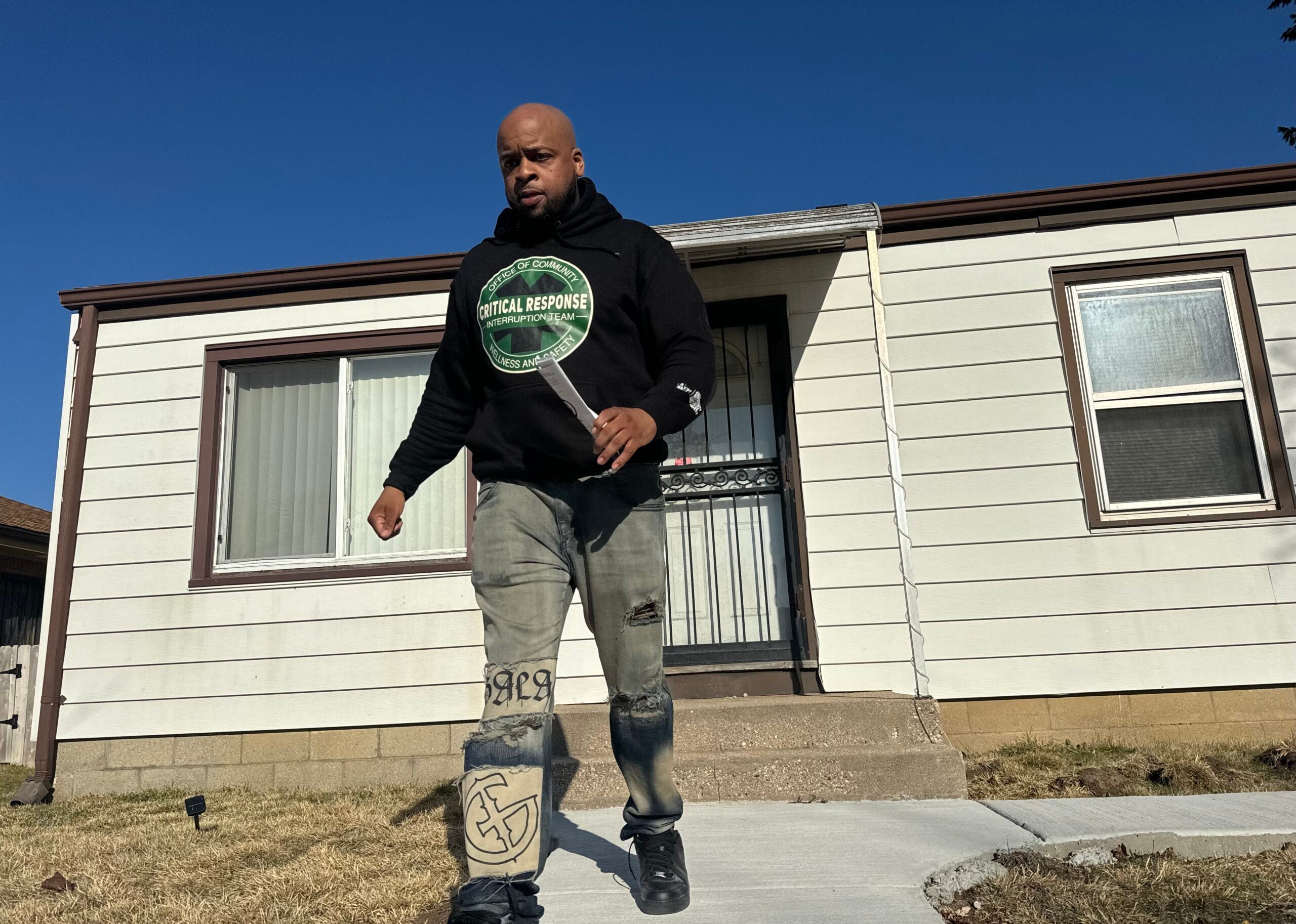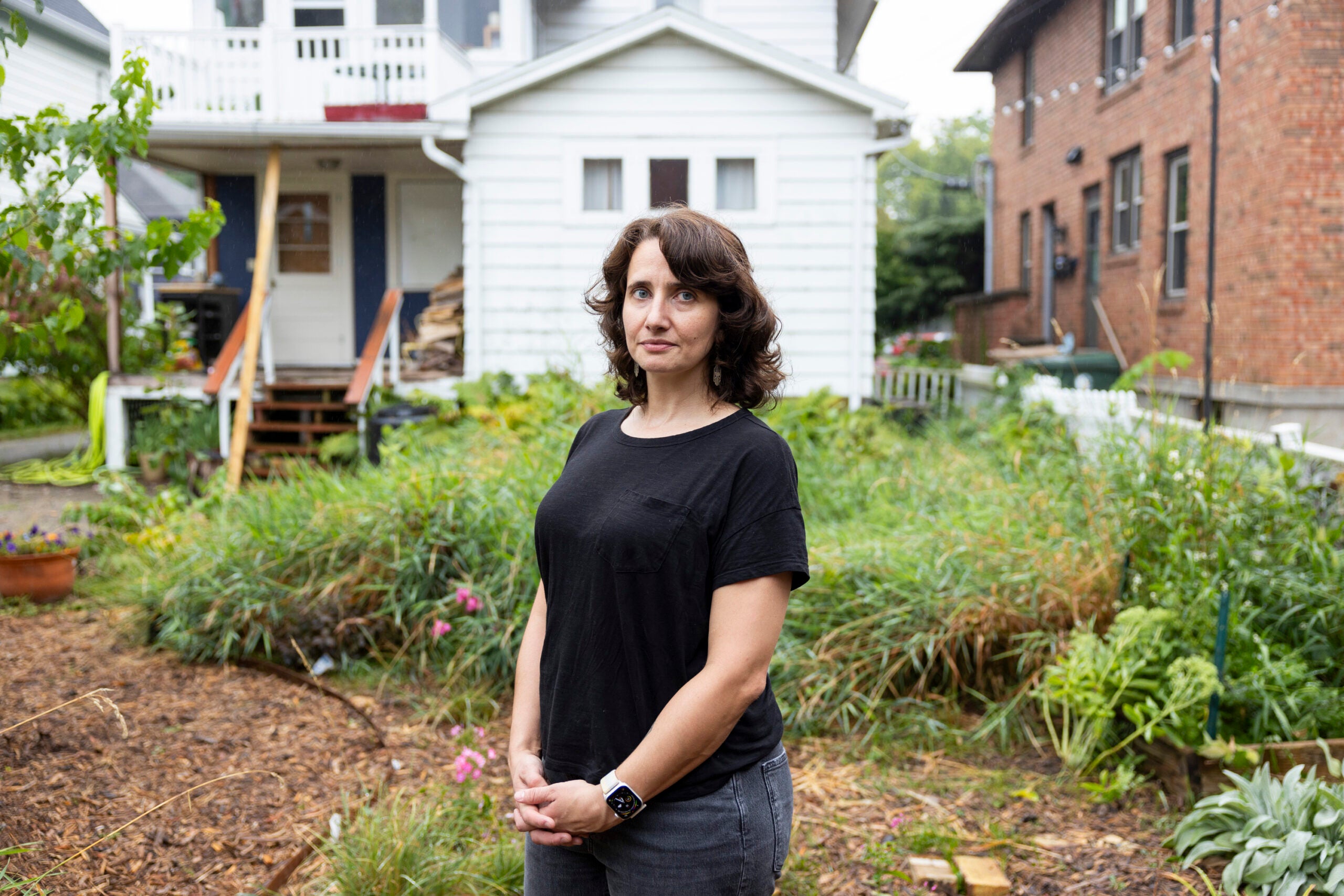After more than seven months of war between Israel and Hamas, a group of Milwaukee students last month traveled to the region to get an in-person perspective on the conflict.
More than a dozen students were part of Hillel Milwaukee’s “Side-by-Side” program, which has been funding trips for years for both Jewish and non-Jewish students to travel and meet people in Israel and Palestinian territories.
But because of the ongoing war, this year’s immersion program brought fewer students along and limited travel to keep safety a top priority, according to Rabbi Joshua Herman, Hillel’s executive director.
News with a little more humanity
WPR’s “Wisconsin Today” newsletter keeps you connected to the state you love without feeling overwhelmed. No paywall. No agenda. No corporate filter.
In May, the students spent over a week traveling to parts of Tel Aviv, Jerusalem and the West Bank to meet with and talk to people living there.
“We considered, should we cancel the trip?” Herman said. “But (then) thought that given the challenges and complexities, it was all the more important to take the trip. We saw a country and spoke to people that are really in the midst of experiencing trauma.”
Herman shared Hillel’s immersion experience with WPR’s “Wisconsin Today” alongside Owen Ward, a geoscience student at the University of Wisconsin-Milwaukee who attended the program.
Ward said he felt neutral about the conflict before going on the trip and still does. But he added he feels more informed now than before.
“I feel like I took a lot away,” he said. “We were talking about the purpose of the trip being to encourage more positive dialogue on campus. And I think that was my major takeaway from a lot of those different viewpoints — taking a moment to step back and let that all sink in and use it to come to your own conclusions about the conflict.”
As far as safety goes, Ward said the immersion program felt more “worry-free” than he initially expected. Hillel had traveled to the Gaza border in previous years. This year, the group’s main excursion outside of Israel was to a West Bank settlement.
One of the most impactful parts of the trip, Ward said, was when the students spoke with Ihab Balha, a Muslim Arab who alongside his wife, Ora, a Jewish Israeli, founded the Orchard of Abraham school in Jaffa, just outside of Tel-Aviv. The school teaches both Israeli and Palestinian children.
Ward said meeting Balha was so influential because it taught the students more about the “underlying mistrust” between the cultures that was there long before the Oct. 7 Hamas attacks and the ongoing Israeli invasion of Gaza.
Herman said talking with the Orchard of Abraham school leadership only highlighted the importance of such places where Palestinian and Israeli people on the ground can talk with one another.
“The families have actually stuck together and just sort of made the agreement that the current hostilities are a cause for more dialogue and more mutual understanding,” he said. “And as a result, they’ve found support in one another throughout this difficult period.”
Wisconsin Public Radio, © Copyright 2025, Board of Regents of the University of Wisconsin System and Wisconsin Educational Communications Board.






